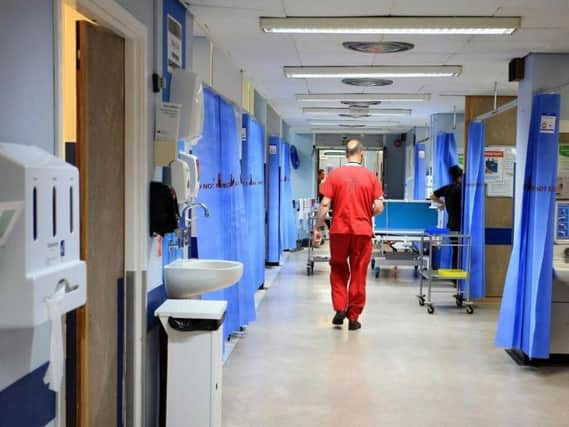Fall in bed-blocking cases in borough


NHS England records “delayed transfers of care”, which are days when patients were medically fit to leave hospital but stuck in beds while preparations were made for their care upon discharge, sometimes known as bed-blocking.
Other news: Hospital vending machines raise thousands towards patients' mealsHealth authorities in Wigan have been working to tackle the problem, with various organisations working together in an integrated discharge team set up two years ago to overcome barriers to patients being discharged.
Advertisement
Hide AdAdvertisement
Hide AdTheir efforts seem to be paying off, with new data from NHS England revealing the drop in the number of days lost to these delays.
The latest data shows there were 341 delayed days in October, dropping from 371 in September and 406 in October 2017.
There were 1,016 delayed days between August and October – 33 per cent fewer than the 1,517 days in the same period the year before.
The most significant drop has been in non-acute care, where there were 213 delayed days in October 2017 and just 74 in October 2018.
Advertisement
Hide AdAdvertisement
Hide AdThe most common reason for delayed days in October this year was waits for further non-acute NHS care, which accounted for 103 days, while 90 days were due to waits for a nursing home placement or availability and 56 days were waits for residential home placements.
The integrated discharge team, based at Wigan Infirmary, sees NHS staff, social care and voluntary services working together to ensure patients can be discharged as soon as they are medically ready.
They can address many issues, such as arranging for a carer or adaptations to the home if needed.
As well as allowing patients to recover at home, freeing up beds in this way can improve the flow of patients around the hospital, with shorter waits to be admitted from the A&E department, for example.
Advertisement
Hide AdAdvertisement
Hide AdChris Broadbent, directorate manager for integrated health services at Wrightington, Wigan and Leigh NHS Foundation Trust, said there had been a “positive steady decline” in delays over the past two years due to the integrated discharge team (IDT).
He said: “This is a significant achievement as it has been particularly difficult as the pressure witnessed over the winter period had resulted in the A&E four-hour national target being at its lowest level for a long time.
“This has been due to the high demand on beds.
“Therefore, a team has been set up to improve the situation, so patients can get the care they need as quickly as possible.
“One key part has been to get patients discharged as early in the day as possible once they are medically fit. They can then go home or to a place of care with all the support they need.
Advertisement
Hide AdAdvertisement
Hide Ad“To enable this to occur, we now have a multiple disciplinary team meeting twice a day, reviewing each individual patient’s progress. Those 15-minute meetings increase focus on quickly identifying and putting in place the bespoke individual packages of care starting as soon as the patient is admitted.
“When the patient is medically fit to leave all the support is all ready to go, so there are no unnecessary waiting or delays in the hospital.
“I am pleased to state that Wigan remains the lowest reporter for DTOCs in the Greater Manchester area.”